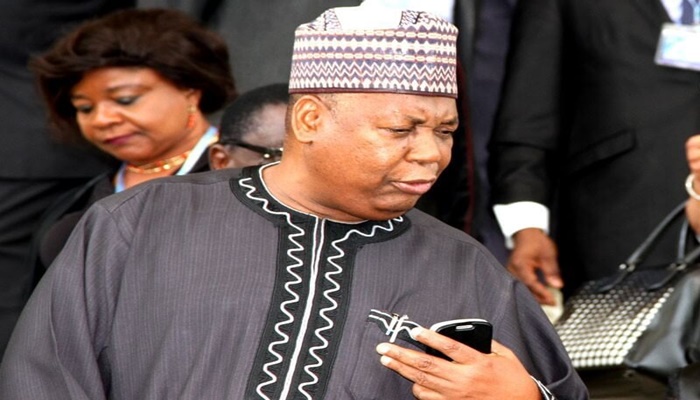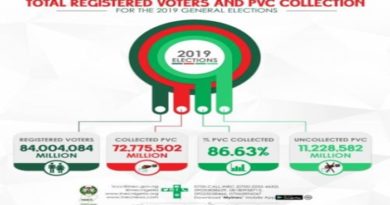NDIC begins verification of insured depositors of 145 MFBs, 6PMBs
.Says payment to verified depositors to commence soon
The Managing Director/Chief Executive, Nigeria Deposit Insurance Corporation (NDIC), Alhaji Umaru Ibrahim on Tuesday said that the corporation has started the verification of insured depositors of 145 Microfinance Banks (MFBs), and six Primary Mortgage Banks (PMBs) that the Central Bank of Nigeria (CBN) recently revoked their operating licenses.
The NDIC boss also revealed that it would soon begin payments to the verified and appropriate depositors in fulfilment of its core mandate.
Ibrahim who disclosed this at the 2018 workshop for Business Editors and Finance Correspondents Association of Nigeria (FICAN), with the theme: ‘Financial Inclusion, Consumer Protection and Evolution of Virtual Currencies in Nigeria’, stated that majority of the depositors especially in the MFBs, have less than N200, 000.00 in their accounts, which implied that the NDIC would hopefully cover 100 per cent of the depositors.
He reaffirmed that NDIC would continue to work closely with CBN to ensure effective supervision of the banks to ensure strict adherence to rules and regulations guiding banking operations.
Speaking on the revocation of the banking license of the defunct Skye Bank, said with bridge bank option, depositors of the defunct Skye Bank are guaranteed access to their total deposits.
He bemoaned that CBN was erroneously credited with the establishment of the bridge bank (Polaris Bank), which is the exclusive responsibility of NDIC as provided for under its enabling Act.
He, however, pointed out that the adoption of bridge bank (Polaris Bank) option to resolve the failure of Skye Bank Plc saved over 6000 jobs, which could have been lost as a result of the bank’s failure.
According to him, the system put in place that allowed Polaris Bank to take over the debunked bank enable depositors to have easy access to deposits more than N949.60 billion as of June 2018.
He hinted that bridge bank is also less costly to the entire macroeconomy, saying that a bridge bank was created as a temporary bank to operate a failed until a buyer can be found and its benefits are not far-fetched.
“The resolution option is less disruptive to the rendition of bank services, unlike outright liquidation or depositors’ payout. The payout option, for example, would have resulted in depositors not assessing their deposits as they would be paid their guaranteed deposits only, in the first instance.
Subsequently, payment of excess uninsured deposits would remain uncertain, protracted and entirely dependent on the level of real usable assets.”
He added that this is intended to protecting depositors against fragrant disregard of extant rules by the management of financial institutions thereby mitigating the occurrence of unlawful insiders’ dealings, weak internal control and overall non-compliance to prudential guidelines.
Also, he said NDIC, in collaboration with relevant critical players in the nation’s financial system, would continue to work on several initiatives to accelerate financial literacy and financial inclusion, especially among rural communities nationwide to promote inclusive growth in Nigeria.
To further enhance financial system stability, he hinted that NDIC has embarked on various public awareness campaigns explaining the role and responsibilities of the customers to their banks, and vice versa, adding that the campaign would essentially instil market discipline on the part of the depositors to ever be more vigilant in choosing financial institutions to bank with.




